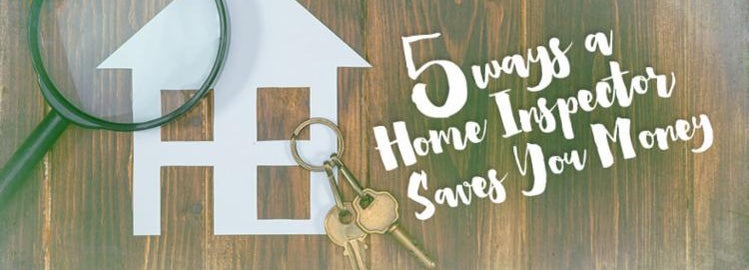5 Ways Choosing a Good Home Inspector Will Save You Money

When buying a home, it’s important to get a home inspection. Yes, it costs money, but it can also become one of your biggest money-savers in the long run. Besides, your insurance company will more than likely require one; there are very few instances where they don't. So how does a home inspector save you money and how do you choose one? To help sort this out, I spent some time with Scott Beasely of Coastal Home Inspections (formerly Don Rader Inspection Services). He owns and operates one of the most trusted home inspection services in the Savannah area. He offers these insights.
How to Choose a Home Inspector
To begin with, you need to understand what a home inspector does, so you can choose one who suits your needs. Scott recommends asking the following questions.
- Are They Licensed? Many states do not have any formal licensing requirements for home inspectors. This essentially means you could get a no-talent guy with a flashlight “inspecting” your home. You don't want to spend money on that. Ask where they received their licensing. Usually, home inspectors must pass a state certification course if their particular state requires certification.
- What Special Qualifications or Certifications Do They Have? Scott says they should offer this information to begin with. Most home inspectors take pride in the training and licensing they have that sets them apart. They might specialize in termites or mold inspection; these additional credentials are calling cards of a sort. They could also be of great benefit to you. Ask whether they have additional skills or training.
- What Does the Inspection Involve? This is perhaps the most crucial question. Some home inspectors are very thorough, while others cover a lot less. It’s very important for you to know what they will be inspecting so you can make sure nothing is missed. The best way to handle this is to ask for a checklist beforehand. That way you can see what they will actually be inspecting when they are on-site. After the inspection, most inspectors will give you an itemized breakdown of the items inspected. This checklist serves as your own little bit of insurance.
- Do They Have References? Most reputable home inspectors will have a list of references, and they may even have testimonials on their website. If they do, read the comments and see if there are any customer complaints. If so, make inquiries. Consider this part of your due diligence. It’s important to vet them before they come to work for you.
Finally, Scott says you should never choose a home inspection based on price alone. He recommends getting bids and asking what’s included in those bids. This will give you an understanding of the value you’re receiving, and will make comparing apples to apples much easier.

How a Home Inspection Will Save Money for You
So how does a home inspection save you money exactly? Here is what Scott has to say.
1. Safety Issues. A good home inspection will uncover safety issues that you might not be aware of. Mold, asbestos, water damage: All of these problems get bigger with time. You need to know what you’re walking into before you spend your hard-earned money on a home.
2. Structural and Pest Issues. If the foundation is faulty or there are termites about, you’ll want to know. These can significantly impact your home over time. Addressing them from the beginning can save you headaches and money in the long term.
3. Code Issues. Is that add-on legal? Is the wiring up to code? A good home inspection will let you know. These types of issues could drastically impact the value of your home if discovered later. You may not be able to count the square footage of an illegal addition as part of your home.
4. Major Appliance Check. That AC unit might only last another year or two, but would you know that? A good home inspector will. They can check major appliances to make sure all are in good working order. They can also give you an estimate of how long the appliances will last.
5. Peace of Mind. A thorough home inspection will allow you to better digest certain kinds of information. Maybe you’re on the fence about buying the house. Sometimes appearances can be deceiving. The home might check out fine after the inspection and only need cosmetic repairs. On the other hand, that newly painted home could be hiding some ugly truths that only a qualified inspector can bring to light. Whatever the case, knowing gives you a certain peace of mind. You can decide if the house is still worth purchasing despite the known issues, or if additional items need to be addressed before you pursue it further.
A thorough home inspection can give you the ultimate bargaining chip when you want to purchase a home. It is one instance where you spend a few hundred dollars and can potentially reap thousands in return by negotiating a lower purchase price.
- If the home inspection reveals that the roof will need to be replaced within a year or two, the price should come down.
- If the AC unit is one its last legs, negotiate a lower sale price.
- Any wiring or code issues might need to be addressed by the current owner in order for you to meet their asking price.
These are just three scenarios out of hundreds. You get the idea. A home inspection is a powerful money-saving tool for a new home buyer. Scott likes to sum it up this way: “When you purchase a home inspection, you're not only saving money, you’re also buying peace of mind.” That’s one of the best things money can buy.
